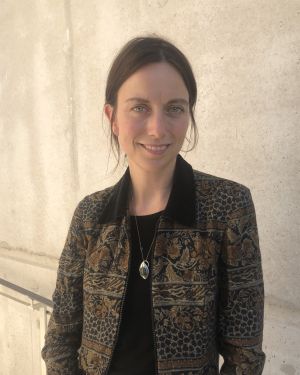Dr Rebecca Noone
- Lecturer in Information Studies (Information Studies)
Biography
I am a Lecturer (Assistant Professor) in Digital Media and Information Studies in the School of Humanities. I am invested in understanding the interplay between everyday experiences of using digital media with the popular discourses and fantasies that animate contemporary digital culture.
For the past ten years, I have studied discourses, practices, and politics of locative media such as digital mapping platforms, and have done so in my faculty role at the University of Glasgow, my postdoctoral research at UCL, and my PhD research at the University of Toronto, as well as part of my artistic practice. My interdisciplinary research draws from a diverse range of approaches such as Platform Studies, Digital Sociology, Critical Cartography, and Visual Methods.
Research interests
As part of my methodological investment in digital media scholarship, I employ creative and arts-based research approaches to help traverse the connections between everyday media practices and pervasive media imaginaries. My book, Location Awareness in the Age of Google Maps (Routledge, July 2024), is an analysis of everyday wayfinding mediated through universalising digital mapping platforms. In researching processes of visualising space in digitally mediated environments, I walked the streets of Toronto, Amsterdam, London and New York, and I asked people to draw me directions. Part of my motivation was to complicate popular discourses that we have ‘lost our sense of direction’ to Google Maps, and instead think about the other types of location awareness that endure. Reflecting on the methodology behind this arts-based research approach, I have also written on the practice of combining conceptual art and critical theory to engage with digital cultures and practices of sense-making in contemporary life.
As an extension of my research into locative media, I am part of a collaborative project to investigate the practices and effects of collecting and selling location data. Applying frameworks of data intimacies and data reproduction, this line of inquiry has produced two co-authored academic articles and conference presentations including at the Association for Computers and the Humanities, the Association for Internet Researchers, and Algorithms for Her. In this work I advance feminist approaches to popular conceptualisations of privacy, surveillance, and access.
Publications
Prior publications
Book Section
Rebecca Noone (2020) Navigating the Thresholds of Information Spaces: Drawing and Performance in Action Visual Research Methods: An Introduction for Library and Information Studies Rebecca Noone.
Article
(2020) Right this way: Exploring the use of mobile maps in Street‐Level wayfinding Proceedings of the Association for Information Science and Technology Rebecca Noone. ISSN 2373-9231 (doi: 10.1002/pra2.416)
(2020) Leighton Evans and Michael Saker, Location-based social media: Space, time and identity Mobile Media & Communication Rebecca Noone. ISSN 2050-1579
Hartel, J., Noone, R., Oh, C., Power, S., Danzanov, P., Kelly, B. (2018) The iSquare protocol: combining research, art, and pedagogy through the draw-and-write technique Qualitative Research Scopus - Elsevier. ISSN 17413109 14687941 (doi: 10.1177/1468794117722193)
Hartel, J., Noone, R., Oh, C. (2017) The creative deliverable: A short communication Journal of Education for Library and Information Science Scopus - Elsevier. ISSN 23282967 07485786 (doi: 10.12783/issn.2328-2967/58/3/4)
Hartel, J., Pollock, K., Noone, R. (2013) The concept formerly known as information (the panel) Proceedings of the ASIST Annual Meeting Scopus - Elsevier. ISSN 15508390 (doi: 10.1002/meet.14505001002)
Other
Rebecca Noone (2020) Navigating the Thresholds of Information Spaces: Drawing and Performance in Action Visual Research Methods Crossref Metadata Search. (doi: 10.29085/9781783304585.009)
Rebecca Noone (2020) From Here To: Everyday Wayfinding in the Age of Digital Maps Rebecca Noone. ISBN 9798698546535
Supervision
- Alharbi, Rawan Hassan N
The impact of memes on internet culture and its role in societal issues. A case study of snapchat and Tik tok in Saudi Arabia. - Briggs, Kristin
Fanfiction and Online Fan Communities: Collecting Practice and Inclusion in a National Collection



